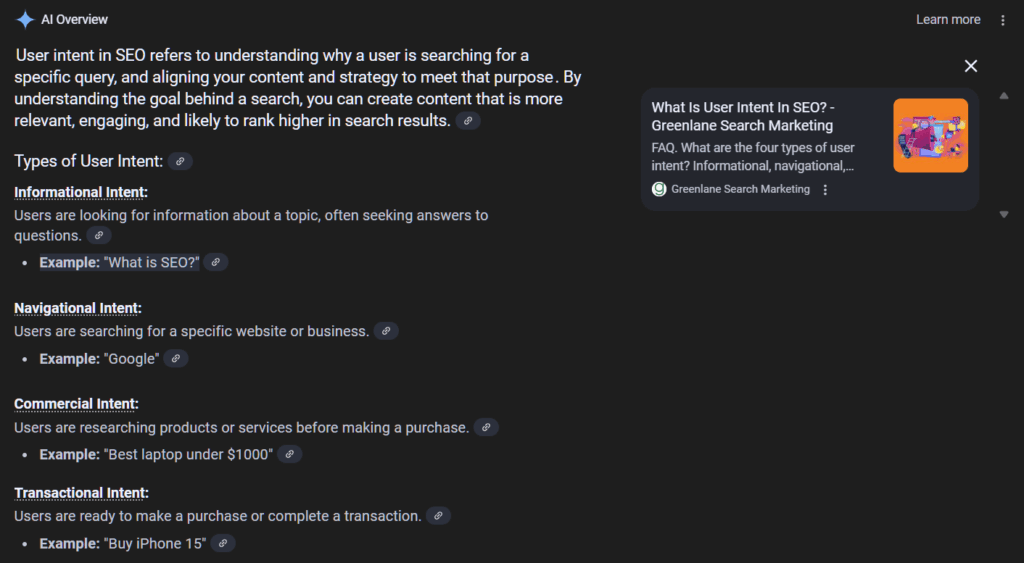How An SEO Agency Can Help in 2025
Key takeaway: Search still starts online journeys, but Google’s AI answers now siphon clicks. The SEO game has changed. Winning means showing up inside those answers and in the classic blue-link list. A modern SEO agency gives you the bandwidth, tech, and strategy to do both.
According to BrightEdge, 68% of online experiences begin with a search engine in 2025, highlighting just how vital search visibility is to your business success.
With such a significant portion of your potential customers starting their journey on search engines like Google, ensuring your website ranks highly isn’t merely beneficial — it’s essential. This is why SEO has enjoyed its prominence as a major digital marketing channel.
But as SEO grew, so did the competition within it. Getting visibility on Google has become increasingly challenging. We are currently going through a significant change due to new Google features and shifting search behavior. Google is making significant changes to its search engine result pages (SERPs), requiring even more effort to achieve organic visibility.
| Then (2015) | Now (2025) |
|---|---|
| 10 blue links → click | AI Overview → answer (maybe a click) |
The New Search Reality: Answers > Clicks
In today’s attention economy, impressions from Google do not result in the same number of clicks we used to receive. This is because, in recent years, Google has shifted its focus from driving traffic to websites to becoming an answer engine of sorts. (Google does say the traffic they do send, although less, is more ready to convert thanks to these changes in their SERPs.)
But what are these changes?
By now, you’ve surely seen rich answers, AI Overviews, and AI Mode products pulling your attention away from the traditional blue links. We are seeing them most often for your top-of-funnel searches. A top-of-funnel search refers to queries made by users who are at the beginning of their buying journey. These searchers typically aren’t ready to make a purchase yet. Instead, they’re looking for general information, advice, or solutions to a problem.
Here is an example of an AI Overview (AIO) that is using TOF content from a Greenlane blog post (screenshot below).
On the left is the answer Google generated for the query “what is user intent in SEO”. This answer was generated with our content.
On the right is a citation linking to our original article. However, the SEO industry is noticing that few users click on these citations. Instead, searchers are typically satisfied by reading the AI-generated answers directly, which unfortunately comes at the expense of the websites that provided the original information.

This is the new reality at Google. It is forcing SEO to be more about driving visibility than measurable clicks. Many SEOs and businesses are unhappy with this change, but Google is all in with their new search engine.
Despite the change, there is still plenty of organic search opportunity in the world of SEO. Google has not abolished blue links. They are still showing plenty to lower-funnel searchers.
What a Modern SEO Agency Actually Does
- Technical Cleanup – Speeds up pages, fixes crawl traps, implements schema.
- Authority Building – Earns high-trust links and brand mentions.
- Measurement & Forecasting – Tracks both classic CTR and “chunk presence” in ChatGPT, Perplexity, and Gemini.
- (And now) AI Visibility – Optimizes copy so LLMs quote your content in AI answers.
When to Seek an SEO Agency
DIY works—until it doesn’t. Early on, a marketer or tech-savvy teammate can handle title tags and blog posts. However, SEO now encompasses crawl-budget audits, entity schema, AI-overview engineering, and ongoing algorithm shifts. Bandwidth and expertise hit a wall fast.
Signs You’ve Outgrown DIY
- Traffic plateaus even as you publish more content
- Dev backlog delays fixes for performance and structured data
- Competitors outrank you (sometimes with rich snippets or AI citations)
- The in-house team spends more time reading update threads than executing
| DIY Works For | Signs You’ve Outgrown DIY | What an SEO Agency Adds |
|---|---|---|
| Basic on-page edits, small blogs, local sites | Plateaued traffic, resource crunch, confusing updates, international or e-commerce ambitions | Senior strategists, enterprise tools, cross-channel data, digital PR, AI-content engineering, revenue forecasting |
Ready to take your SEO to the next level? Let’s turn your searchers into customers. Contact us to review your SEO needs.
Interested in SEO services? We are a Philadelphia SEO agency supporting clients all over the country. Let’s talk.







